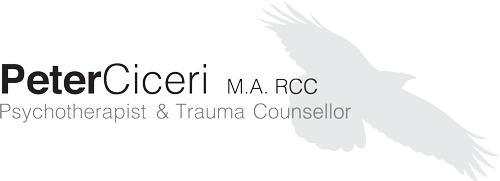Psychedelic Therapy Research
References and Clinical Research Papers:
There have been several notable clinical studies that indicate the therapeutic benefits of psilocybin and MDMA. Here are some key studies for both substances:
- Johns Hopkins University Study on Depression and Anxiety (2016):
- Study: Psilocybin-assisted therapy for depression and anxiety in patients with life-threatening cancer.
- Findings: The study showed that a single high dose of psilocybin produced substantial and sustained decreases in depression and anxiety in 51 patients. Six months after the treatment, approximately 80% of participants showed clinically significant reductions in depression and anxiety.
- Source: Griffiths, R. R., et al. (2016). “Psilocybin produces substantial and sustained decreases in depression and anxiety in patients with life-threatening cancer: A randomized double-blind trial.” Journal of Psychopharmacology, 30(12), 1181–1197.
- Psilocybin for Treatment-Resistant Depression (2016, Imperial College London):
- Study: This study focused on treatment-resistant depression, administering psilocybin to 12 patients.
- Findings: All patients showed improvement after just two sessions, and five were in remission after three months. The study showed significant potential for psilocybin to help individuals who have not responded to traditional treatments for depression.
- Source: Carhart-Harris, R. L., et al. (2016). “Psilocybin with psychological support for treatment-resistant depression: An open-label feasibility study.” The Lancet Psychiatry, 3(7), 619–627.
- Psilocybin and Long-Term Depression Relief (2020, Johns Hopkins):
- Study: Examined the long-term effects of psilocybin on patients with depression.
- Findings: After two psilocybin sessions, 71% of the participants showed a clinically significant response after four weeks. Around 54% met the criteria for remission of depression.
- Source: Davis, A. K., et al. (2020). “Effects of psilocybin-assisted therapy on major depressive disorder: A randomized clinical trial.” JAMA Psychiatry, 78(5), 481-489.
- MAPS Phase 3 Clinical Trial for PTSD (2021):
- Study: The Multidisciplinary Association for Psychedelic Studies (MAPS) conducted a phase 3 clinical trial for MDMA-assisted psychotherapy for PTSD.
- Findings: After three MDMA-assisted therapy sessions, 67% of participants no longer met the criteria for PTSD, compared to 32% of those receiving a placebo with therapy. The study is significant because it shows the potential for MDMA to treat PTSD where traditional therapies have failed.
- Source: Mitchell, J. M., et al. (2021). “MDMA-assisted therapy for severe PTSD: A randomized, double-blind, placebo-controlled phase 3 study.” Nature Medicine, 27, 1025-1033.
- MDMA and Social Anxiety in Autistic Adults (2018):
- Study: MDMA-assisted therapy for social anxiety in adults with autism.
- Findings: This small pilot study found that MDMA significantly reduced social anxiety in autistic adults after two sessions, with participants reporting long-lasting improvements in social interactions and a reduction in avoidance behavior.
- Source: Danforth, A. L., et al. (2018). “Reduction in social anxiety after MDMA-assisted psychotherapy with autistic adults: A randomized, double-blind, placebo-controlled pilot study.” Psychopharmacology, 235, 3137–3148.
- MDMA for Alcohol Use Disorder (2020, Imperial College London):
- Study: MDMA-assisted therapy for the treatment of alcohol use disorder.
- Findings: Early results from a small study suggested that participants experienced significant reductions in alcohol consumption following MDMA-assisted therapy sessions. Participants reported that MDMA allowed them to address underlying trauma contributing to their addiction.
- Source: Sessa, B., et al. (2020). “MDMA-assisted psychotherapy for alcohol use disorder: Open-label pilot study.” Journal of Psychopharmacology, 34(3), 285–295.
- Griffiths, R. R., et al. (2016).
“Psilocybin produces substantial and sustained decreases in depression and anxiety in patients with life-threatening cancer: A randomized double-blind trial.”
Journal of Psychopharmacology, 30(12), 1181–1197.
- This study demonstrated the efficacy of psilocybin in reducing depression and anxiety in individuals with life-threatening cancer.
- Carhart-Harris, R. L., et al. (2016).
“Psilocybin with psychological support for treatment-resistant depression: An open-label feasibility study.”
The Lancet Psychiatry, 3(7), 619–627.
- This open-label study showed psilocybin’s potential in treating treatment-resistant depression.
- Davis, A. K., et al. (2020).
“Effects of psilocybin-assisted therapy on major depressive disorder: A randomized clinical trial.”
JAMA Psychiatry, 78(5), 481-489.
- A clinical trial that showed psilocybin-assisted therapy significantly reduced depression in patients with major depressive disorder.
- Mitchell, J. M., et al. (2021).
“MDMA-assisted therapy for severe PTSD: A randomized, double-blind, placebo-controlled phase 3 study.”
Nature Medicine, 27, 1025-1033.
- This pivotal phase 3 trial showed that MDMA-assisted therapy led to a significant reduction in PTSD symptoms, with 67% of participants no longer meeting the criteria for PTSD.
- Danforth, A. L., et al. (2018).
“Reduction in social anxiety after MDMA-assisted psychotherapy with autistic adults: A randomized, double-blind, placebo-controlled pilot study.”
Psychopharmacology, 235, 3137–3148.
- This pilot study investigated the effects of MDMA-assisted therapy on social anxiety in autistic adults, showing significant improvements.
- Sessa, B., et al. (2020).
“MDMA-assisted psychotherapy for alcohol use disorder: Open-label pilot study.”
Journal of Psychopharmacology, 34(3), 285–295.
- A study investigating the potential of MDMA in reducing alcohol dependence by addressing the emotional roots of addiction.
- Carhart-Harris, R. L., et al. (2014).
“The effects of psilocybin on brain activity and brain connectivity.”
Journal of Neuroscience, 34(46), 15112–15119.
- A study showing that psilocybin alters brain connectivity, leading to changes in how different brain regions communicate and process emotions.
- Nichols, D. E. (2016).
“Psychedelics.”
Pharmacological Reviews, 68(2), 264–355.
- A comprehensive review on the pharmacology of psychedelics, including psilocybin, LSD, and MDMA, and their effects on the brain’s serotonin receptors.
- Pollan, M. (2018).
How to Change Your Mind: What the New Science of Psychedelics Teaches Us About Consciousness, Dying, Addiction, Depression, and Transcendence.
- A popular book that explores the history, neuroscience, and therapeutic potential of psychedelics.
